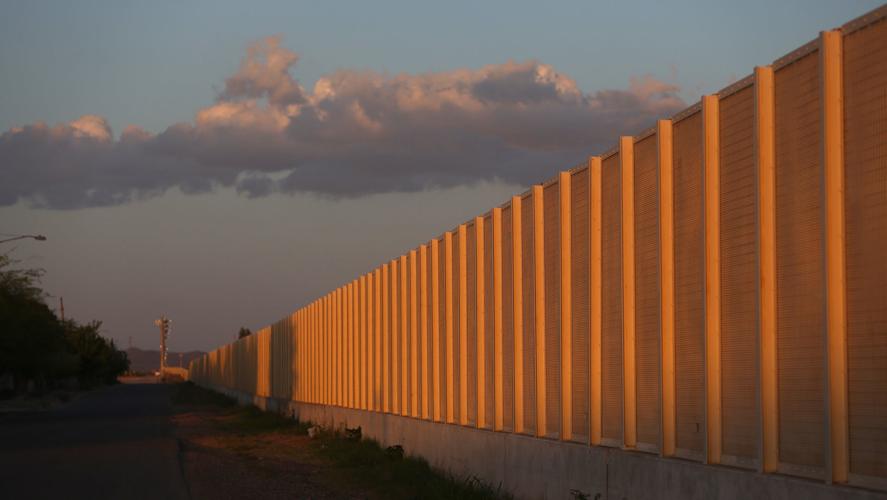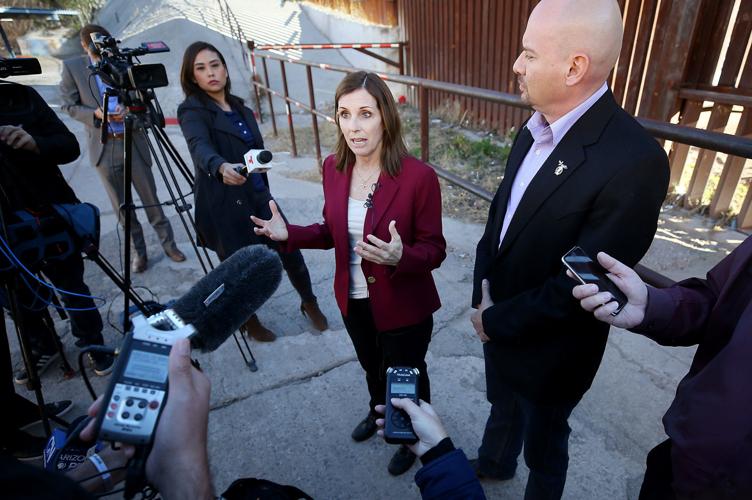When this whole shutdown started, the central issue was how much money should be spent on a border wall.
In that infamous meeting Dec. 11 between President Trump, Sen. Chuck Schumer and Rep. Nancy Pelosi, Trump said, “I’d like not to see a government closing, a shutdown. We will see what happens over the next short period of time. But the wall is a very important thing to us.”
Now, the government has been partially closed for more than a month. Federal employees are poised to miss their second paycheck this week. And instead of zeroing in on a solution, the proposals are getting expansive, encompassing more and more pieces of the immigration puzzle that for decades has eluded a solution.
Bringing in more issues — the wall, asylum restrictions, DACA provisions, immigration courts — while the government is shut down is not the right way to fix the problem. If a fight over spending on a border wall was enough to lead to a closure, then putting more immigration dishes on the negotiating table seems like a wrongheaded way to find a solution.
I put my perspective on this to Sen. Martha McSally on Tuesday, when she held a press conference in the cold shadow of the downtown Nogales border fence. McSally, a Republican, said bringing more issues might be the way to end the shutdown.
“If it’s going to take having a conversation about DACA in order to get Democrats to vote for it, let’s have that conversation,” McSally said. “If you want to amend the bill, then come up with your amendments. If you don’t like some things in the legislation, then let’s talk about what you want to take out.
“This is what reasonable people should do, sitting at the table, trying to find a solution to this issue that can get through both houses and to the president’s desk.”
The problem is, reasonable people don’t get into a situation like this — shutting down the government to fulfill a campaign promise about a border wall. It’s an unreasonable situation becoming more unwieldy as other knotty issues are thrown in.
It may sound reasonable, for example, to offer Democrats something on the Deferred Action for Childhood Arrivals program to get them to accept spending more money for a border wall. But of course, the offer is not that straightforward. The Trump administration’s offer would simply return the “dreamers” to the temporary status they had before the president took it away — not much of an offer.
So that piece alone would require its own new negotiation.
Just as important, the 1,300-page proposal the president has made includes drastic changes in asylum laws aimed at limiting the number of Central Americans who claim it here.
“The most interesting and deplorable aspect is the targeting of Central American children, basically saying Central American children don’t have a right to asylum,” Tucson immigration attorney Mo Goldman told me. “The stripping of asylum rights is the most damning aspect of it.”
Of course, Central American families and even lone children have constituted the bulk of the current wave of asylum-seekers. They represent a complicated problem that deserves a solution, and maybe the president has a couple of ideas that would help. But reasonable people would not be trying to solve it as a condition for getting out of an increasingly dire and painful government shutdown.
Back in 2013, you may recall, a bipartisan group of senators nicknamed the Gang of Eight put together a comprehensive immigration-reform bill that passed the Senate with 68 votes. It took six months of work before it passed in June that year before languishing in the House, where Speaker John Boehner refused to bring it up.
But this is the kind of work it takes to come up with a bill that has a chance. Slogging negotiation and trading of horses has to happen.
Now, to her credit, McSally said she does not support the shutdown in concept.
“I’m for funding the government. I’m not for shutting down the government, just to be clear. That’s not the way for people to work out their differences,” she said.
“We need to open up the government and secure the border.”
She’s right — and it should take place in that order. She and Sen. Kyrsten Sinema will have a chance Thursday to show their good judgment on this when a floor vote to re-open the government and pay federal workers without first solving these issues happens on the Senate floor.
Earlier in this shutdown, which preceded either senator taking office, McSally and Sinema supported an effort to pass a three-week funding resolution to allow the sides to negotiate on border security. Even that is a tight schedule for such a complicated issue, but it is at least the way our system is supposed to work.
We negotiate policy differences on big issues like immigration freely in Congress, not as hostages to a shutdown.






